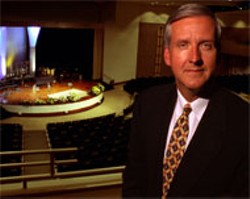In November, 2004, the New York Times revealed that the International Red Cross had issued a report about conditions at the Guantanamo Bay Detention Center in Cuba. What they found, the Red Cross said, was "tantamount to torture" - in other words, torture - including both physical and psychological abuse.
Moreover, the IRC found that the abuse was aided by US medical officials who were opening up the detainees' medical records to "Behavioral Science Consultation Teams," or Biscuit teams, as interrogators refer to them. These Biscuit teams use the information they get from detainees' medical pasts and psychological exams and treatment to give interrogators an edge, an idea of where to go with their questioning and methods.
Investigative journalists later reported on soldiers who, anonymously, admitted to several forms of prisoner abuse, all of which are against long agreed to international law. These soldiers said that, among other things, they administered enemas to especially tough detainees as a way of softening them into releasing information. They also shackled prisoners, forced them to listen to loud music, stripped them, and froze them. In addition, they defaced the Koran and sent women in to sexually taunt devout Muslims. All on the American taxpayer's dime.
Columnist Molly Ivins wrote an impassioned piece, "Torture In Our Name," in which she pointed out that "our country has opposed torture since its founding. One of our founding principles is that cruel and unusual punishment is both illegal and wrong." So, she asked the American people, "What are you going to do about this?" Ivins also asked the penetrating question, "What are our moral values? Where are our clergymen on this? Speak out, speak up."
Good questions. We asked a few local religious leaders — Pastor David Chadwick of Forest Hills Church; Rabbi Judith Schindler of Temple Beth El; Andy Baxter, a Methodist Minister and Executive Director of Mecklenburg Ministries; Rev. Steve Shoemaker of Myers Park Baptist; and Rev. James Howell of Myers Park Methodist Church — how the reports of torture by American personnel had affected them, whether they considered it an important moral issue, and what, if anything, they had said to their congregations about it.
Regardless of religious affiliation, the clergy members we interviewed said they were opposed to torture, and found the torture at Guantanamo Bay to be especially unnerving.
"A follower of Jesus," stated Pastor David Chadwick of Forest Hills Church, "who takes the scriptures seriously would have difficulty squaring this activity with teachings like love your enemy, pray for your persecutor, do not return evil for evil."
All of the religious leaders quoted scripture that spoke against harsh treatment of enemies, and loving those who worked against you.
Opinions differed, however, on whether torture was ever acceptable. "In my religion, torture is never justified," said Rabbi Schindler.
Pastor Chadwick, on the other hand, opined, "If information gained by putting someone under physical pain ultimately saved hundreds or thousands of lives, there's a part of me that says that's appropriate." He emphasized that lines needed to be drawn, and that there must be a certain degree of certainty prior to the act that something extremely valuable would be gained. "I don't think out and out physical pain without boundaries is appropriate," Chadwick added.
Rev. Andy Baxter felt the opposite: "This mode of thinking — to torture one to save thousands — is antithetical to Christian tradition. Christians throughout time have been willing to suffer, even if the suffering killed them, because it would not be the final word. By abstaining from evil, the love of God would overcome."
Some of the clergy members saw the Guantanamo Bay abuses as something other than a protective act. Rabbi Schindler remarked that Deuteronomy warns against the evils of war in its statement: "When you go out as a troop against your enemies, be on your guard against any evil thing." Rabbi Schindler explained: "There is an awareness when you enter war, that the human inclination could lead to further abuses than what is justified."
The view that the actions in Guantanamo Bay are a form of evil rising from war is reflected in the Christian faith as well. Rev. Howell said, "If you arm people raised on [violence] and put them in the presence of people they may have reason to fear, and before whom they feel a tad superior — why would anyone be surprised that some act out in ugly ways?"
Reverend Baxter feels similarly. "When I look at what is happening at the prison, and what is in the scripture, my response is that this is sin. This is committing evil in the name of preventing evil."
Rabbi Schindler gave Israel as an example of proper conduct toward prisoners of war. Although the country is under near constant attack, it does not allow torture, including a specific ban within the legal system. "A reasonable investigation is one free of torture, free of cruel, inhumane treatment of the subject, and one free of any degrading handling whatsoever," states the Israeli Supreme Court Ruling on Torture and Interrogation, "There is a prohibition on use of brutal or inhumane means in the course of any investigation."
Speaking of News_feature.html
-

When HIV comes home
Jul 20, 2005 -

Rasslin' Pioneers
Jul 13, 2005 -

Geddings on McCrory: "This guy is vulnerable"
Jul 6, 2005 - More »
Latest in News Feature
More by Samantha Gellar
-

Night of the Longest Read
Feb 22, 2006 -

Games People Play
Jan 25, 2006 -

Munich to Mommy
Jan 11, 2006 - More »
Calendar
-

Wine & Paint @ Blackfinn Ameripub- Ballantyne
-

Queen Charlotte Fair @ Route 29 Pavilion
-

NEW WINDOW GALLERY-Pat Rhea-ACRYLIC PAINTINGS-April 05-30 2024 VALDESE, NC 28690 @ New Window Gallery/Play It Again Records
- Through April 30, 12 p.m.
-

TheDiscountCodes
-

Face to Face Foundation Gala @ The Revelry North End
-
Esports in Charlotte Takes Off: A Guide to Virtual Competitions and Betting
-
Homer's night on the town 41
If you drank a shot with the Knights mascot on Sept. 20, you were basically harboring a fugitive
-
Beauty Industry Trends To Look Out For In Charlotte In 2022










